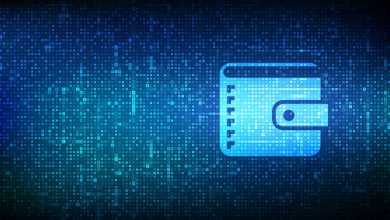Life is a journey filled with opportunities, challenges, and growth. Cultivating positive habits plays a crucial role in shaping our experiences and outcomes. By adopting fundamental habits that contribute to personal development, well-being, and success, we can lead more fulfilling and meaningful lives. In this article, we explore the essential habits that are integral to a well-rounded and balanced lifestyle.
1. Practice Gratitude: Cultivating Appreciation
- Daily Reflection: Take a moment each day to acknowledge and express gratitude for the blessings in your life.
- Gratitude Journal: Maintain a journal to document the things you are grateful for, fostering a positive outlook.
2. Set Goals: Creating a Vision for the Future
- Clear Objectives: Set specific, achievable goals that provide direction and motivation for personal and professional growth.
- Action Plans: Break down your goals into actionable steps and track your progress regularly.
3. Maintain a Healthy Lifestyle: Nurturing Your Well-Being
- Balanced Diet: Consume a variety of nutritious foods that support physical health and overall vitality.
- Regular Exercise: Engage in physical activity to enhance cardiovascular health, strength, and mental well-being.
- Prioritize Sleep: Ensure adequate sleep for cognitive function, emotional balance, and physical recovery.
4. Embrace Continuous Learning: Fostering Intellectual Growth
- Lifelong Learning: Cultivate a curious mindset and pursue opportunities to expand your knowledge and skills.
- Read Regularly: Devote time to reading books, articles, and other sources of information to broaden your perspectives.
5. Practice Mindfulness: Nurturing Mental Clarity
- Mindful Awareness: Engage in mindfulness practices, such as meditation and deep breathing, to reduce stress and enhance focus.
- Live in the Present: Be fully present in each moment, appreciating the richness of your experiences.
6. Build Strong Relationships: Nurturing Connections
- Quality Time: Invest time in building and maintaining meaningful relationships with family, friends, and colleagues.
- Effective Communication: Listen actively, express yourself clearly, and show empathy in your interactions.
7. Manage Time Wisely: Maximizing Productivity
- Prioritize Tasks: Create to-do lists and prioritize tasks based on their importance and deadlines.
- Time Blocking: Allocate specific time blocks for focused work, leisure, and relaxation.
8. Cultivate Resilience: Overcoming Challenges
- Positive Mindset: Develop a resilient attitude by reframing setbacks as opportunities for growth.
- Adaptability: Embrace change and develop the ability to adjust to new situations with flexibility.
9. Give Back: Contributing to Others
- Acts of Kindness: Engage in acts of generosity and volunteerism to contribute to your community and society.
- Empathy and Compassion: Extend kindness and support to those in need, promoting a sense of purpose.
10. Practice Self-Care: Prioritizing Your Well-Being – Self-Reflection: Dedicate time to self-reflection and self-care activities that nurture your mental and emotional health. – Boundaries: Establish healthy boundaries to protect your time, energy, and well-being.
Cultivating essential habits empowers us to lead purposeful, balanced, and fulfilling lives. These habits create a strong foundation for personal growth, positive relationships, and overall well-being. By incorporating gratitude, goal-setting, healthy living, continuous learning, mindfulness, and more into our daily routines, we can navigate life’s challenges with resilience and embrace its joys with a sense of purpose. Ultimately, these habits empower us to make the most of our journey and create a life that is rich in meaning and fulfillment.
The Evolution of Human Development According to Theories: Unraveling the Journey of Human Evolution
The story of human evolution is a captivating narrative that spans millions of years, encompassing remarkable transformations and adaptations. Various scientific theories have been proposed to shed light on the complex journey of human development. In this article, we delve into the key theories that provide insights into the evolution of our species, highlighting the stages and factors that have shaped Homo sapiens into the beings we are today.
1. Darwinian Evolution: The Concept of Natural Selection
- Charles Darwin’s Theory: Darwin proposed the concept of natural selection, where advantageous traits are passed down through generations, leading to the survival and reproduction of the fittest individuals.
- Adaptation to Environment: Human ancestors adapted to changing environments, resulting in the development of unique traits suited to their surroundings.
2. Bipedalism: Walking Upright as a Milestone
- Bipedal Adaptation: The transition to walking on two legs freed the hands for tool use and contributed to brain expansion.
- Australopithecines: Fossil evidence suggests that early hominins like Australopithecus afarensis adopted bipedalism around 3.5 million years ago.
3. Tool Use and Early Technology: Homo Habilis and Beyond
- Emergence of Homo Habilis: This species is associated with the earliest use of stone tools around 2.5 million years ago.
- Cognitive Advancements: Tool use suggests a higher level of cognitive ability and problem-solving skills.
4. Expansion of Brain Size: The Role of Homo Erectus
- Brain Enlargement: Homo erectus, with a larger brain than its predecessors, is linked to greater cognitive capabilities.
- Control of Fire: Evidence suggests that Homo erectus learned to control and use fire, offering warmth, protection, and improved digestion of food.
5. Language Development: Homo Heidelbergensis and Neanderthals
- Vocal Communication: Homo heidelbergensis and Neanderthals likely had the capacity for basic vocal communication.
- Symbolic Expression: Neanderthals demonstrated symbolic thinking through art, body ornamentation, and burial practices.
6. Behavioral Modernity: The Emergence of Homo Sapiens
- Homo Sapiens: Our species, Homo sapiens, emerged approximately 300,000 years ago, characterized by sophisticated tool-making, language, and culture.
- Cognitive Revolution: Homo sapiens experienced a cognitive leap, enabling complex language, abstract thinking, and symbolic expression.
7. Cultural Evolution: Advancements in Social Organization
- Agricultural Revolution: Around 10,000 years ago, the transition from hunting-gathering to agriculture led to settled societies and the growth of civilizations.
- Technological Innovations: Innovations such as the wheel, writing, and metalworking shaped human societies and economies.
8. Modern Evolution: Genetic and Cultural Interplay
- Genetic Adaptation: While physical evolution has slowed, genetic adaptations continue to occur in response to changing environments.
- Cultural Influence: Human culture, transmitted through language and education, has become a dominant driver of our species’ development.
The journey of human evolution is a testament to the remarkable adaptability and ingenuity of our species. From bipedalism and tool use to the emergence of complex language and cultural advancements, each stage in our evolutionary history has contributed to the unique attributes that define Homo sapiens. While genetic changes have played a role, cultural evolution has become a powerful force, shaping our societies, economies, and technological achievements. By examining the theories and stages of human evolution, we gain a deeper appreciation for the intricate processes that have led to the diversity and complexity of human existence.

















